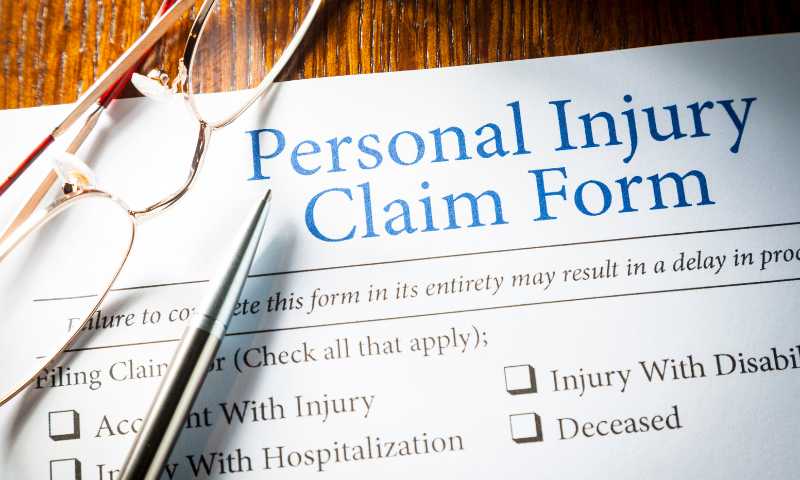Emotional Distress Examples: The Impact on Personal Injury Claims

When personal injuries occur, they can leave severe emotional scars that often go unrecognized. Understanding emotional distress and its impact on personal injury claims is crucial for seeking fair compensation.
At Held, Held & Held, we empathize with the pain and suffering experienced by victims. Our dedicated team of experienced attorneys is here to guide you through the complex legal process and help you build a strong case. In this article, we will explore some examples of emotional distress, shed light on its significance, and empower you with knowledge.
Contact a Brooklyn personal injury lawyer from our team to protect your rights and seek the compensation you deserve.
Defining Emotional Distress
Emotional distress is a mental and psychological injury that can arise from various circumstances, such as accidents, intentional actions, or negligence. It encompasses a range of symptoms, including anxiety, depression, and mental anguish, which can significantly impact an individual’s well-being. When it comes to personal injury claims, emotional distress refers to the harm suffered by a victim due to the actions of another party.
This category of damages acknowledges the profound effect emotional trauma can have on an individual’s life, extending beyond physical injuries. It involves the anguish, sadness, and loss experienced, affecting the victim and their loved ones. Proving emotional distress in a personal injury lawsuit often requires the help of an experienced attorney.
Common Examples of Emotional Distress in Personal Injury Cases
In personal injury cases, emotional distress can manifest in various ways, causing significant mental and psychological suffering.
These examples highlight the range of emotional distress that victims may suffer:
- Anxiety and Panic Attacks: The trauma of an accident or incident can lead to persistent anxiety, including recurring panic attacks and a constant state of fear.
- Depression and Mental Health Conditions: Personal injuries can trigger or worsen pre-existing mental health conditions such as depression, bipolar disorder, or post-traumatic stress disorder (PTSD).
- Loss of Enjoyment and Quality of Life: Victims may experience a profound sense of loss, losing the ability to engage in activities they once enjoyed and experiencing a diminished overall quality of life.
- Emotional Trauma and Disturbed Sleep: The emotional impact of an injury can cause nightmares, insomnia, and disrupted sleep patterns, further contributing to the victim’s mental anguish.
- Social Isolation and Relationship Strain: Emotional distress can lead to social withdrawal, strained relationships with loved ones, and feelings of isolation due to the difficulties caused by the injury.
- Psychological Symptoms and Emotional Instability: Victims may exhibit symptoms such as mood swings, irritability, anger outbursts, or emotional instability due to the emotional distress they endure.
- Grief and Emotional Turmoil: In cases involving the loss of a loved one, the emotional distress experienced by family members can be overwhelming, leading to grief, sadness, and a prolonged period of mourning.
It’s important to note that emotional distress damages are integral to personal injury lawsuits. If you or a loved one have suffered emotional distress due to the negligence or intentional actions of another, consult an experienced personal injury lawyer who can assess your case and help you seek the compensation you deserve.
The Impact of Emotional Distress on Personal Injury Claims
Emotional distress can have a profound impact on the compensation you receive in personal injury claims. It goes beyond physical injuries and directly affects your mental and emotional well-being. The severity and extent of emotional distress experienced can significantly influence the amount of compensation you are entitled to. Symptoms such as anxiety, depression, and chronic mental anguish can contribute to the evaluation of your case. Skilled personal injury attorneys, like those at Held, Held & Held, understand the intricacies of quantifying emotional distress damages and work diligently to ensure that all aspects of your suffering are considered, maximizing the compensation you receive for your pain and suffering.
Seeking Legal Help for Emotional Distress Claims
Navigating emotional distress claims in a personal injury case can be complex, but a skilled lawyer can provide invaluable assistance. An experienced attorney, well-versed in personal injury law and knowledgeable about emotional distress damages, understands how to build a compelling case on your behalf. They can gather necessary evidence, consult with experts, and effectively communicate the impact of emotional distress to insurance companies or in court. With their guidance, you can navigate the legal process, ensuring that your emotional suffering is properly recognized and considered when seeking compensation for your injuries.
Contact a Brooklyn Personal Injury Lawyer Today
Emotional distress is a profound aspect of personal injury cases that should never be overlooked. It can leave lasting scars, affecting your mental well-being, relationships, and overall quality of life. Recognizing the impact of emotional distress and seeking appropriate compensation is crucial.
At Held, Held & Held, we have the experience and resources to navigate the legal landscape, ensuring that your emotional suffering is acknowledged and valued. Let us be your trusted advocates, standing by your side and pursuing the justice and compensation you deserve.
Contact Held, Held & Held today to schedule a free case review and take the first step towards reclaiming your life.



